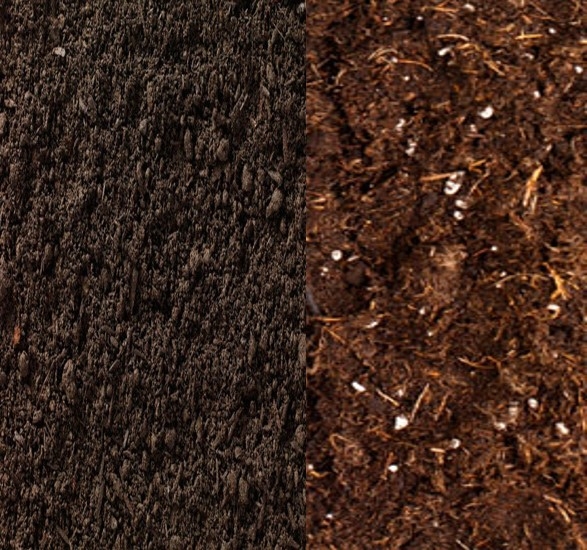THE CONSTRUCTIONIST.

FEB
15
COMMON MYTHS ABOUT SOIL AND COMPOST
Soil can be a complex product with many different elements and properties. There are a wide variety of uses and applications and from which people have various opinions. We’re here to try to dispel some common myths about soil and compost.
Soil Myths
Pine needles and tree leaves acidify the soil. When still green, some pine needles are partially acidic, however after they have dried up or start to decompose the acidity is extracted from the needles. Although various types of tree leaves do contain an acidic pH, it is not nearly enough to cause a big change in the soil pH level; Use lime if you want to raise pH level in your soil.
When planting shrubs or trees, you should add compost only to the holes. Yes, in many ways compost improves soil, but it should be added to the entire planting area or bed, not just the holes. The reason is with new trees, shrubs or plants the roots system can be fairly small and you want the roots to grow far and wide to be healthy and give optimal support. If you only make changes to the soil in the hole, often times the roots will reach the edge and grow along it, similar to being in a pot.
Adding gypsum will loosen compacted soils. Gypsum is a soft sulfate mineral composed of calcium sulfate dehydrate, and is widely mined and is used as a fertilizer. Gypsum does not alleviate compaction or loosen clay in our soils. Gypsum is used in arid soils that have high salt content to loosen soils. The calcium chemically reacts with the sodium to separate soil particles. Gypsum is best used to supply calcium to soils where the pH is already acceptable. It is also a good source of sulfur for plants.
Compost Myths
Compost is a fertilizer. Yes, compost does contain low levels of primary and secondary nutrients, some important quantities of micro-nutrients, and contributes to plant nutrition. However, they do not contain enough primary nutrients to qualify as a fertilizer. There is a common misperception that because compost is good for plants, it must be a fertilizer.
Compost is Humus. Humus is the organic component of soil, formed by the decomposition of leaves and other plant material by soil microorganisms.Compost contains humus, which is one reason for its remarkable traits, but it is not entirely made up of humus. Every gardener knows that compost needs to be renewed.Humus, in contrast, can remain unchanged in soil for thousands of years.
“There’s no such thing as too much compost.” Some gardeners would say this word for word, mainly because they are struggling to produce enough of it and it’s difficult to imagine having too much. It is obvious that smothering your lawn or garden in compost is not a good idea. The recommended amount to apply for lawns is 1 cubic yard per 1000 square feet.
At Earthco Soil Mixtures, we deliver high quality soil and compost products. Visit our website today for more information. https://www.earthcosoils.com/
Information sourced from:
Planet Natural: http://bit.ly/2ETAIQF
Progress Index: http://bit.ly/2ondQP5
FIND A LOCATION NEAR YOU
BY POSTAL CODE
KMBY CITY















